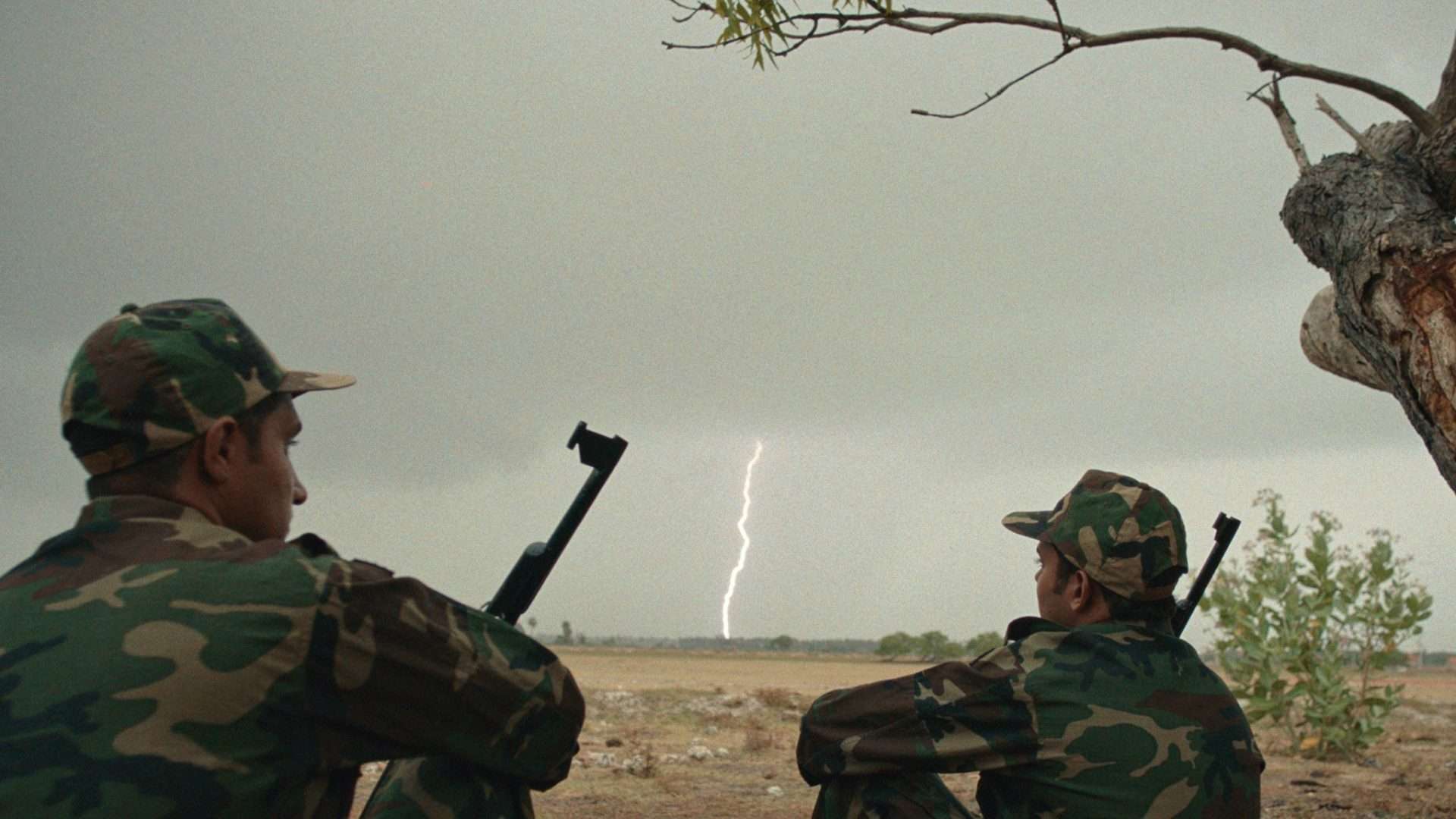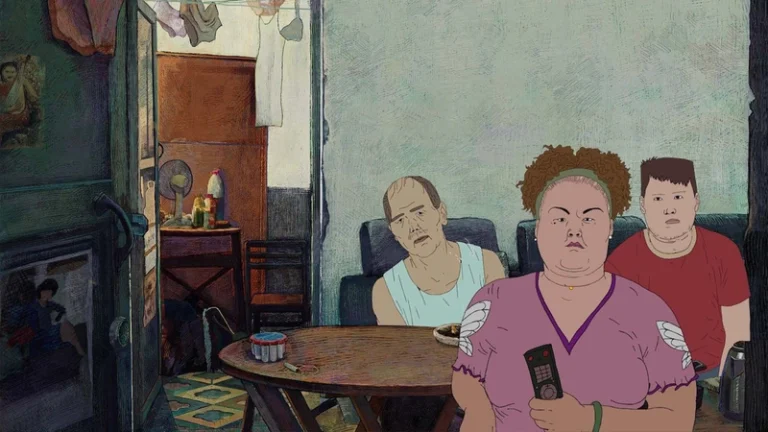Thousands of Tamils were killed, tortured, and disappeared in the 26-year-long Sri Lankan civil war, which only ‘officially’ ended in 2009. The island’s northern province, home to Jaffna and Kilinochchi and the base of the separatist outfit, Tamil Tigers, recorded the highest body count. Sieges and barbarities inflicted on Tamil civilians trapped in the crossfires between the Sinha-majority military and the rebels, forcing conscription from every family-have barely been acknowledged. In “Your Touch Makes Others Invisible,” writer-director Rajee Samarasinghe creates a shifting monument to memories.
The film takes an aerial view of the spate of disappearances dotting the nation’s turbulent history. Vanished, coercively erased bodies form the ruptured, bruised heart of the film’s potent inquiries. Drawn-out bereavement serrates the emotional tone of testimonies propping up the otherwise fleet-footed, stylized interpolations. Direct, frontal accounts meld with seeming diversions, striking a formal fluidity in the film. Mostly, women’s voices comprise the bulk of the remembrances. Search for their long-lost spouses and sons remains an interminable cycle of holding onto faith in their return. A woman talks of her Tiger-recruited son who surrendered to the military and yet disappeared.

Is there anything the missing people’s families know which is the absolute truth? The historically marginalized Tamil minority has had to battle for the barest shred of information. They are kept in the dark. Any door they knock on for help, i.e., the Red Cross, the Human Rights Commission, even the UN-is bulldozed by a complete lack of transparency. They hope against hope for answers, resolutions, clarity, and the reappearance of loved ones. Several testimonies echo a commitment to protests against injustice, participation in them crossing many years.
Things bleakly stay the same. The beleaguered are fated, pushed into a fog of lies, half-truths, vague, spurious ‘facts’. There might not even be a pretense of veracity in the reassurances fed. Samarasinghe doesn’t wholly thrust us into a particular strand. Instead, it’s a sea of perceptions, anxieties, and lived experiences we navigate. Ex-President Mahinda Rajapaksa dismissed the concerns of thousands as propaganda work done to malign Sri Lanka. Anguish over the infamous ‘white van’, a symbol of abductions, is also wholly laughed off as a fabrication. In a scene, a creaky, derelict TV, tucked away in ruin, spectrally airs Rajapaksa’s interview of sheer denial, while a man stares at the camera, his gaze unwavering, calling for confrontation.
How to carry on living when your existence is shamelessly eroded by the powers that be? Every mercy the world has to offer gets crushed for Sri Lanka’s Tamil community. It is as if they are continually asked, threatened to make peace with the fact of bare survival; those who have been taken can no longer be claimed, irrespective of justice. The hybrid film is a stirring, staunch defiance of the inevitability of disavowed justice.

There’s much wandering limning the film, which isn’t so resigned as it is persistent, cutting against invisibilization. These near-impressionistic fragments fold themselves into the maelstrom of testimonies, the staging and fictive elements never a jarring superimposition. Though the film understandably dovetails away from specifics, given how dangerous mounting it must have been, Samarasinghe crafts each pained shard as existing within a long, irreparably brutal, unyielding history.
Collating a series of sequences that almost seem to float, buttressed by soaring, sweeping drone shots, “Your Touch Makes Others Invisible” trembles with ache, searching, unending grief-evoking lives that never got to move past shattering loss. It’s by turns piercingly mournful, resistant, and dreamily elevated, a deft fusion of historical memory and individual detours.




![The Endless Trench [2019] Netflix Review – An Incredible Drama on the Living Ghosts of Francoist Spain](https://79468c92.delivery.rocketcdn.me/wp-content/uploads/2020/04/The-Endless-Trench-2019-768x433.jpg)



